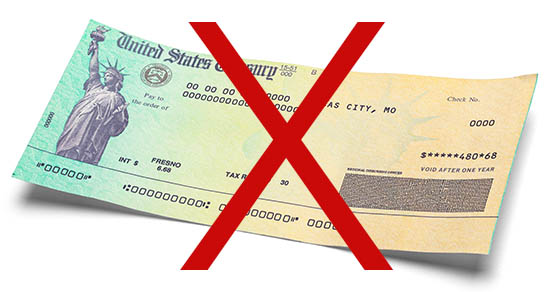
Say Goodbye to Paper Checks: What Taxpayers Need to Know
The federal government has announced a major change that will affect how millions of Americans receive their tax refunds and federal benefit payments. Beginning September 30, 2025, the U.S. Treasury Department, IRS, and Social Security Administration (SSA) will stop issuing paper checks. All payments will be made electronically through direct deposit or prepaid debit cards.
This transition is designed to increase efficiency, reduce fraud, and lower administrative costs — but it also means taxpayers must prepare now for an all-digital system.
Why the Change?
For decades, many taxpayers have received paper checks for refunds, Social Security benefits, or other federal payments. But under an executive order signed by President Trump, that option will end in 2025.
The reasoning is clear: Treasury checks are 16 times more likely to be lost, stolen, or altered compared to electronic payments. Direct deposit is faster, safer, and more reliable.
What If You Don’t Have a Bank Account?
One challenge is the “unbanked” population — individuals without traditional checking or savings accounts. According to the FDIC, millions of Americans still fall into this category.
To ease the transition, the government may issue refunds on prepaid debit cards or encourage financial institutions to provide low- or no-fee accounts. However, taxpayers without bank accounts are strongly encouraged to open one now to avoid payment delays.
How This Change Could Affect You
Here are three key impacts of moving to an all-electronic system:
A U.S. bank account will be required. Taxpayers must have a bank or credit union account to receive payments.
Faster refunds. Direct deposit eliminates mailing delays and gets money to you sooner.
Lower fraud risk. No more worries about lost, stolen, or altered checks.
Special Considerations
U.S. citizens abroad: Direct deposit typically requires a U.S.-based account. Expats may need to set up U.S. banking solutions or await further guidance on exceptions.
Estates and trusts: Executors and trustees may face challenges since forms don’t currently allow for direct deposit information, and account names may not match IRS requirements. The AICPA has requested flexibility and updated guidance for these cases.
Social Security beneficiaries: Fewer than 1% still receive paper checks. If you’re among them, update your information with the SSA or enroll in the Direct Express® prepaid debit card program.
The Bottom Line
The end of paper checks marks a significant shift in federal payment processing. While most taxpayers will benefit from faster, safer transactions, it’s important to plan ahead — especially if you don’t currently use direct deposit.
As the September 30, 2025 deadline approaches, the IRS and SSA are expected to release additional guidance and outreach campaigns. You can read more about it on the IRS press page.
If you have questions about how this change may affect your tax filing or benefits, our team is here to help.
Contact us at: 512-930-4090



